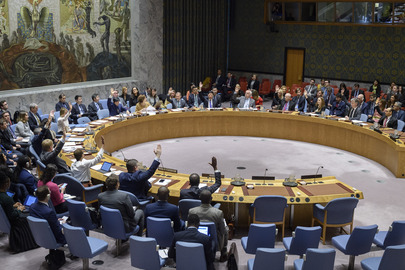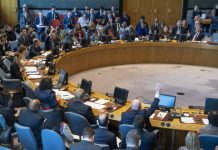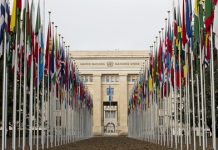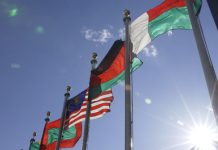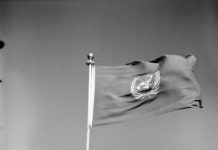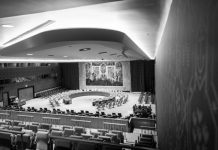António Guterres is the first serving UN Secretary-General to visit the country, which is celebrating 50 years of independence.
He praised its tremendous diversity, with over 800 languages spoken and countless traditions.
Commitment to peace, dignity and progress
“And yet, you have a shared commitment to speak with one voice – to having ‘one talk’ – for peace, for dignity and for progress,” he said.
“You are champions of multilateralism and international solutions. And that spirit is urgently needed in our world today.”
Mr. Guterres pointed to the current global turmoil as efforts to reduce poverty have stalled, “barbarous conflicts unfold on livestream” and the climate crisis is accelerating.
Other issues include geopolitical tensions, runaway technologies, growing inequalities and shrinking democratic space.
Teaching the world
Against this backdrop, “Papua New Guinea offers a number of powerful lessons to the world,” he said, with the first being the art of forging consensus through dialogue.
The country has spent the past half century building “a single nation out of many traditions, many islands, many tongues”, which has not been easy.
Last Saturday, 30 August, marked the 24th anniversary of the Bougainville Peace Agreement. The 1998 accord between the Government and separatists ended a decade of conflict and established the autonomous Bougainville region.
Mr. Guterres said that while the conflict left deep scars, Papua New Guinea and Bougainville have stayed the course of peace for more than two decades.
“You have shown the world the path of healing through dialogue, perseverance and mutual respect,” he said, adding that people in Bougainville will go to the polls on Thursday in the fifth autonomous election since the agreement.
Leadership in climate action
Another lesson from Papua New Guinea has been bold climate action, he continued.
This was the Secretary-General’s first visit to the region since the International Court of Justice (ICJ), the UN’s highest judicial body, issued a landmark advisory opinion affirming that addressing the climate crisis is a legal obligation under international law.
As Pacific countries played a central role, the advisory opinion “is a testament to the leadership of Papua New Guinea, Melanesia and the wider Pacific region, particularly your young people, who make up 60 per cent of your population”, he said.
A crucial voice
“Your voice will be integral again during the annual UN climate conference in Belem, Brazil,” he said, warning that efforts to limit global temperature rise to 1.5 degrees Celsius are in jeopardy.
He urged countries to submit new national climate plans that align with this goal, cover all emissions across their economies and accelerate the transition from fossil fuels.
Mr. Guterres also called for action on climate finance, including stepping up contributions to the loss and damage fund, while richer countries must honour their promise to double adaptation finance and deliver $300 billion each year over the next decade.
Furthermore, as many developing countries are “drowning in unsustainable debt”, reform of the current international financial architecture is needed to make it fairer and more representative. The same applies to the UN Security Council and other international institutions.
Representation of women
The UN chief noted that Papua New Guinea once hosted peacekeepers, but today is a champion of peacebuilding and sustainable development.
“But, no story of peace or progress is complete without fully including half of the population. This is another area where you have the opportunity to set a global example,” he said.
He recalled that UN Deputy Secretary-General Amina Mohammed was in the country five years ago to launch the Spotlight Initiative — part of the world’s largest effort to end all forms of violence against women and girls, a challenge that exists in all societies.
In March, the national parliament devoted an entire day to testimonies on gender-based violence, marking a vital step.
“Ensuring greater voice and representation of women is not only a matter of justice — it is a matter of national strength,” he said.
“Families thrive. Communities grow stronger. And institutions become more responsive when we uphold the rights of all.”
Source of original article: United Nations (news.un.org). Photo credit: UN. The content of this article does not necessarily reflect the views or opinion of Global Diaspora News (www.globaldiasporanews.com).
To submit your press release: (https://www.globaldiasporanews.com/pr).
To advertise on Global Diaspora News: (www.globaldiasporanews.com/ads).
Sign up to Global Diaspora News newsletter (https://www.globaldiasporanews.com/newsletter/) to start receiving updates and opportunities directly in your email inbox for free.


